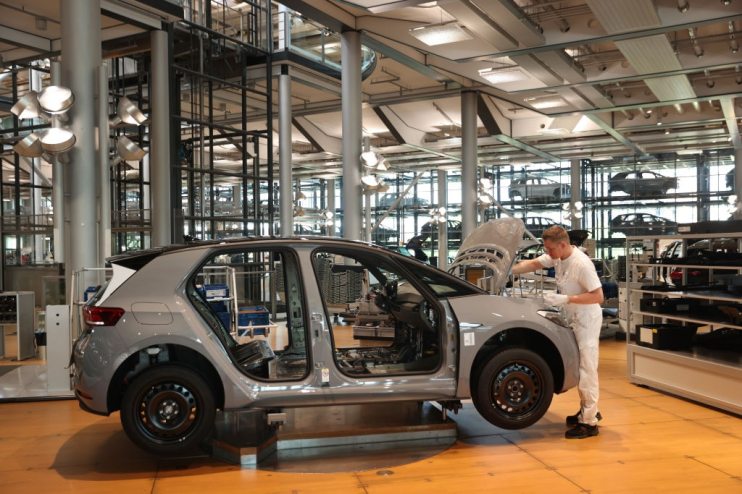Semiconductor chip shortage puts on the brakes for Volkswagen and Toyota

A semiconductor supply crunch is forcing world leading car manufacturers Volkswagen and Toyota to slash vehicle production.
Toyota, the world’s largest car maker, announced it will cut production by 40 per cent in September. Instead of making 900,000 as planned the manufacturing giant will now produce just 500,000 cars.
Likewise, Volkswagen’s parent plant in Wolfsburg confirmed that it will have to restart manufacturing at limited capacity in the coming weeks. Some models are currently unavailable for order, which will lead to further production cuts after the summer.
“We currently expect supply of chips in the third quarter to be very volatile and tight,” a Volkswagen spokesperson told Reuters. “We can’t rule out further changes to production.”
The carmaker said it expects the situation to improve by the end of the year and aims to make up for production shortfalls in the second half as far as possible.
The news comes as Covid-19 outbreaks in Asia have caused chip production and operations at commercial ports to slow dramatically, stunting production in the auto industry amidst recovering demand.
Recent supply chain issues follow a production suspension at German chipmaker Infineon’s plant in Malaysia after a Coronavirus outbreak in June.
Infineon CEO Reinhard Ploss previously stated that the automotive industry faced “acute supply limitations across the entire value chain.”
Volkswagen shares are down by more than two percent while Toyota’s share price has fallen by 4.42 per cent. Share prices for rival carmarkers including BMW, Daimler, Renault and Stellantis have also been depressed by the news.